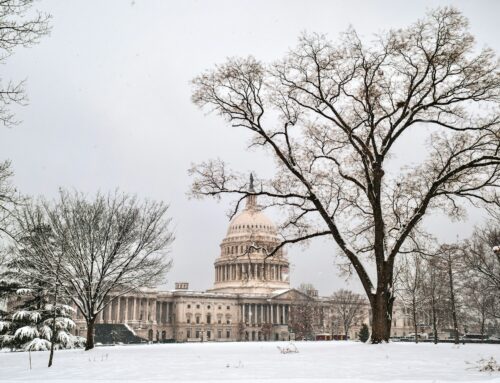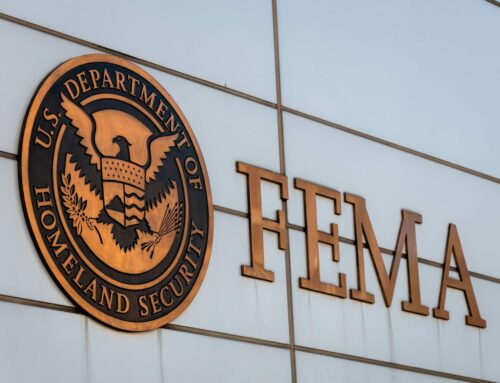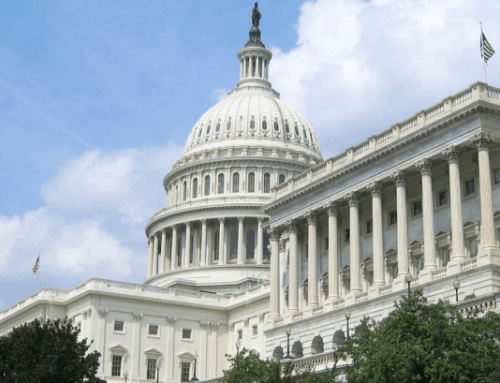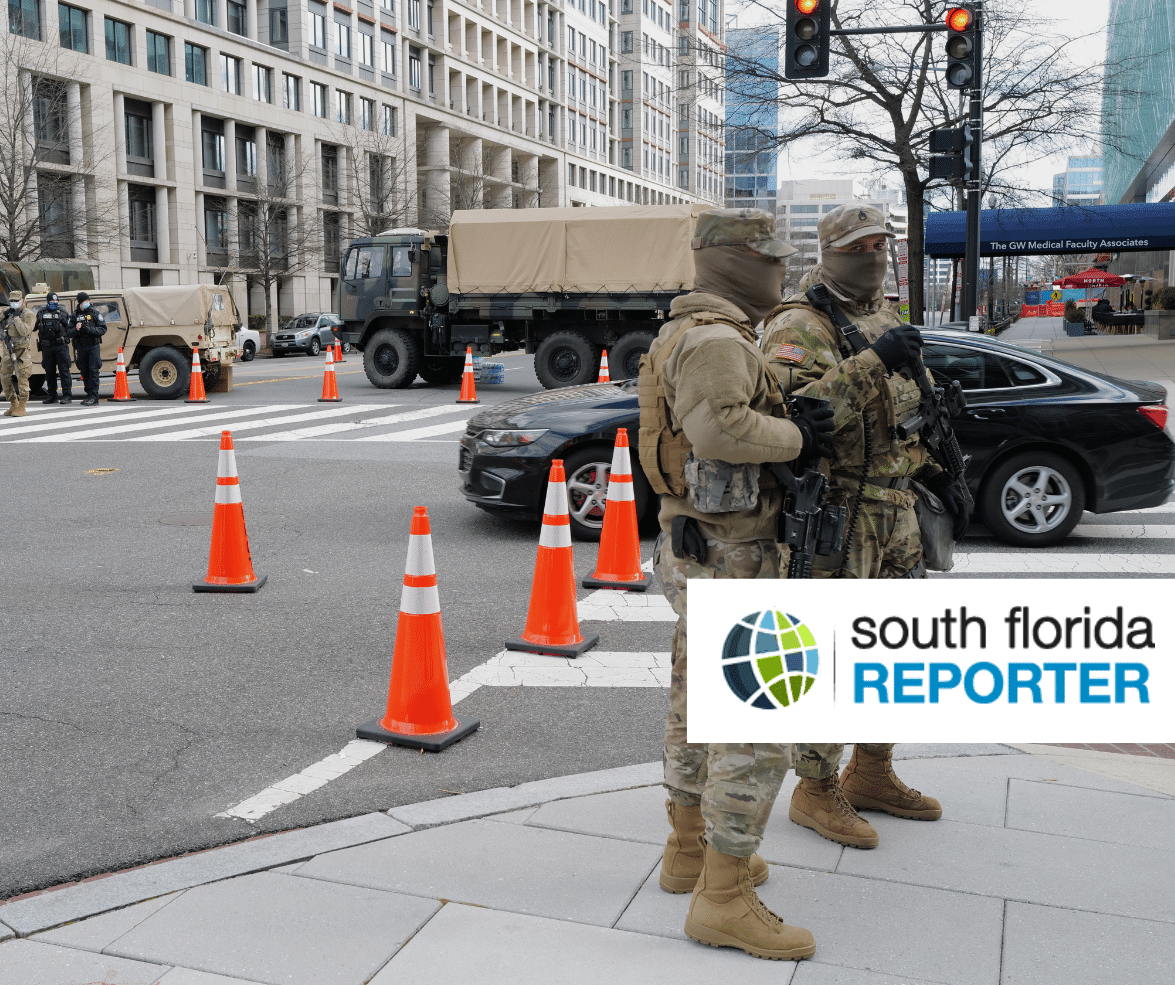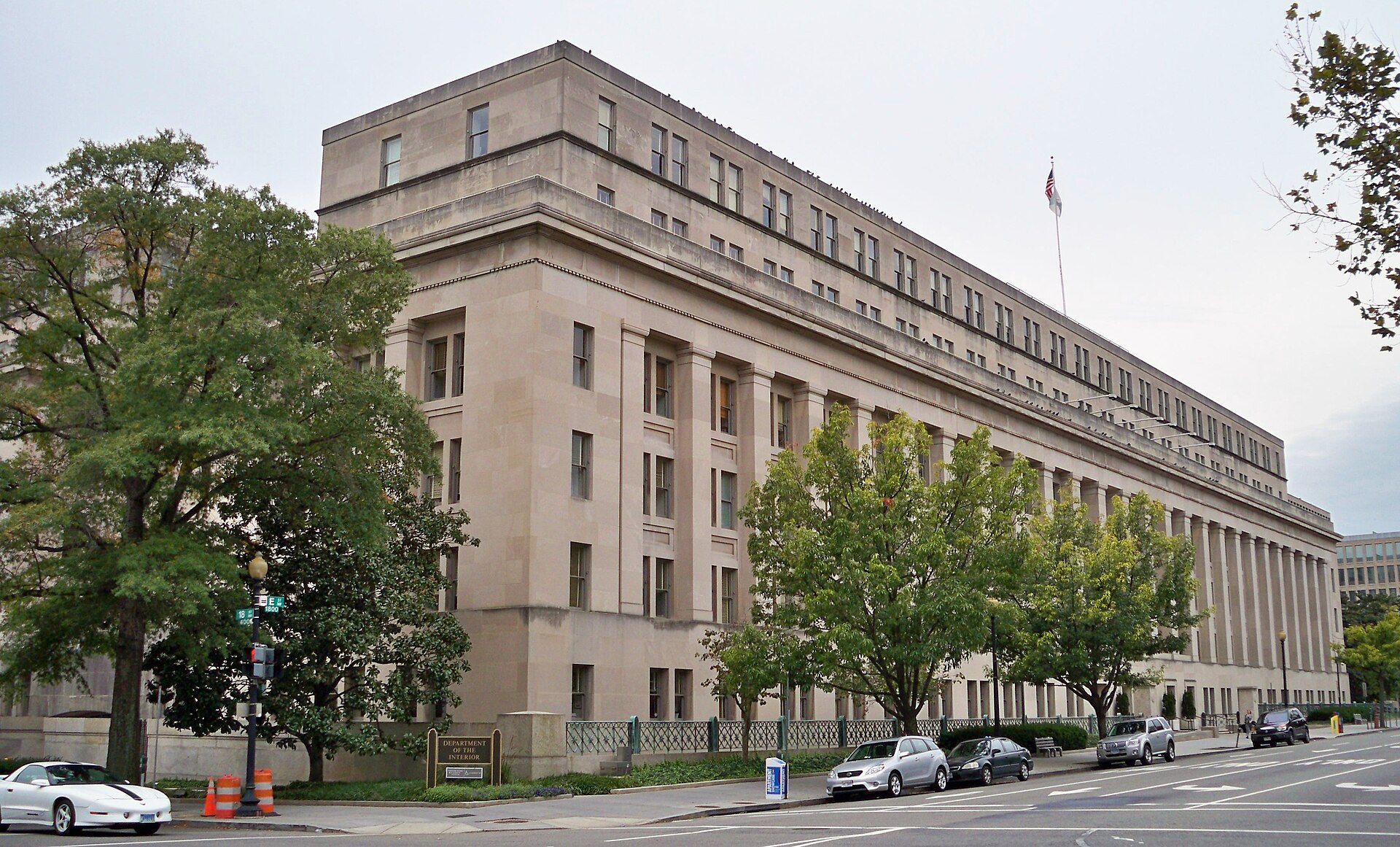With just days until a potential government shutdown, TCS President Steve Ellis and Director of Research and Policy Josh Sewell break down the looming crisis facing taxpayers. From the controversial “pocket rescission” maneuver to the unprecedented threat of shutting down the entire government—including military pay—this episode reveals the hidden costs of political dysfunction. Learn why shutdowns actually waste taxpayer money at $1.5 billion per day while delivering zero value to American families.
Transcript
Announcer (00:02):
Welcome to Budget Watchdog All Federal, the podcast dedicated to making sense of the budget spending and tax issues facing the nation. Cut through the partisan rhetoric and talking points for the facts about what’s being talked about, bandied about and pushed to Washington, brought to you by Taxpayers for Common Sense. And now the host of Budget Watchdog AF TCS President Steve Ellis.
Steve Ellis (00:40):
Welcome to All American Taxpayers Seeking Common Sense. You’ve made it to the right place for 30 years. TCS, that’s taxpayers for common sense, has served as an independent nonpartisan budget watchdog group based in Washington dc We believe in fiscal policy for America that is based on facts. We believe in transparency and accountability because no matter where you are in the political spectrum, no one wants to see their tax dollars wasted. It’s September 24th, 2025, and we’re just six days away from a potential government shutdown. And guess what? This isn’t just about partisan politics. It’s about a fundamental breakdown and how taxpayer money gets allocated and whether your elected representatives actually control federal spending. Join me today to explain what this means for government accountability and your tax dollars is our very own director of research and policy. Josh Sewell. Welcome back, Josh.
Josh Sewell (01:31):
Hey, thanks Steve. It’s always good to be here.
Steve Ellis (01:33):
So Josh, like I said at the top, we’re six days from the shutdown and the administration has already redirected billions of taxpayers money under the current continuing resolution. And they’re using a so-called pocket rescission. What are they doing? What’s a pocket rescission? Is it like a pocket veto?
Josh Sewell (01:51):
So, well, Steve, normally when Congress sends a house and Senate passed bill to the president and he does not sign it, the legislation becomes law after 10 days. And as you mentioned, unless Congress has adjourned, then it doesn’t, and that’s what’s known as a pocket veto. So basically the time runs out, president doesn’t actually have to have a actual choice of veto and it just goes away on its own. So in the case of a rescission, the president sends a list of appropriated items that he would like to cut, and that funding is suspended during the suspension. Congress has 30 days to vote to agree with that choice of rescinding the funds or not. And so if you remember, they did that earlier this year in the summer, Congress did in fact resend a few billion dollars worth of funds. Now, if Congress decides instead to vote against the cut or doesn’t vote, the money is restored. But with a pocket rescission, the president sends the list less than 30 days before the end of the fiscal year. And so it stays cut because time runs out. At least that’s the theory.
Steve Ellis (02:54):
But in the pocket veto case, the president never signs the legislation into law. But with this pocket rescission, the president has already agreed to the spending and the continuing resolution. Then he signed back just shortly after he took office. So what’s the legality here?
Josh Sewell (03:09):
That’s a really good question. I mean, a judge ruled against the administration on their proposed cut of 5 billion as part of this gambit, we’ll call it, and the appeals court let it stand, but the Supreme Court Chief Justice Roberts let the administration proceed with the cut while the court evaluates the decision in the future. So it’s a gray area. This hasn’t been tried before. And so the answer is, I don’t know. I don’t think it is legal, but I’m not on the Supreme Court and I’m obviously not at OMB right now. So we’ll find out.
Steve Ellis (03:41):
So Josh, while we’ve been through shutdowns before, even under President Trump in his first term, this is some uncharted territory because one the pocket excision issue that we were just discussing, but then also once government shuts down, there’s been a push by the OMB director Russ Vote, and by others in the administration to exert more executive control. And with government shut down, then they get to decide what gets funded or not, right?
Josh Sewell (04:10):
Yeah, there’s not a lot of statutory history. There’s not a lot of laws that govern a government shutdown because the government is shut down. And so the way you get Congress’s input into how to run the government is to have a funding bill that then has those directions either in law or in the bill reports that go with it. So under any lapse in funding, that’s what it is. It’s not necessarily a government shutdown. We have a lapse in funding. How we’ve approached these in the past has been through OM B’S directions to the agencies and precedent and OMB looking at its own precedent across numerous administrations. So this is not completely unchartered territory, but we have a different captain in the boat or ship I should say. I’m sorry. It’s a ship, not a boat.
Steve Ellis (05:02):
Yes, and I’m too far to say a fiscal ship is sinking, but alright, let’s go. Speaking of fiscal issues, our own work here at TCS has shown that government shutdowns actually cost taxpayers money rather than saving it. The 2013 shutdown costs 24 billion, that’s one and a half billion dollars per day that government was shut down. What are the hidden costs that taxpayers, our listeners should understand?
Josh Sewell (05:31):
So there are a lot of costs that come with government shutdowns. So there’s an immediate cost which is not actually hidden at all, which is that people who are not working get paid money for not working. And that’s, it’s how it’s always been. Government workers, it’s not their fault that they can’t work. And so historically, once the government opens back up, they get paid even if they weren’t allowed to work. And actually after the last long shutdown in 2019 under the Trump administration, they actually passed a law that says if you’re furloughed, they be in Congress and the president signed it. If you are furloughed during a government shutdown, we are required to pay you. And there can be some exceptions, but that’s basically the gist of it. So that’s an immediate cost. But for taxpayers, the hidden part of that is that we’re losing out on those government services.
(06:20):
So we’re paying for something and we’re not getting it. But I think more broadly there’s depressed economic activity and we see that this after every shutdown, the congressional budget office has evaluated it, non-aligned folks in the nonprofit sector have looked at it. There’s just less economic activity. And even though the government oftentimes does spend that money, even though if you had a two week, a three week, a four week lapse in funding, the spillover effect is just not the same. There’s always a little bit of a dip of some percent in GDP, but also frankly, it’s demoralizing. It adds disruption and unpredictability to the workforce. So it depresses morale. We can see it ourselves, not just for us because we have to not work with certain people or have to work with people who are already get ahold of for a short period, but also it’s just in the workforce. You see it here in DC and other places. And I think frankly, it can be demoralizing for contractors and anybody who has built their life around expectations that the government’s going to work in a certain way and they’re going to be able to work on certain projects and products. And so it’s just a big snafu that causes disruption without much, if any positive impact.
Steve Ellis (07:38):
And it looks like we’re definitely going to hit a shutdown this year, right, Josh? I mean the Democrats seem like they’re saying they’re not going to provide the additional votes necessary to get passed the filibuster and the Senate and the house is out of town. And so that leaves essentially just a couple days next week before everything shuts down.
Josh Sewell (07:57):
Both sides are dug in pretty hard. And so it appears that both the Democrats and the Republicans think that they can win the shutdown, fight the political spinning of it. And so until something changes in that vein, it’s clear we’re going to, it’s about as again, if anyone knows, I’m not very good at predictions. We learned that last year, but this time with the House money and the Senate money is on a shutdown for at least some amount of time. It could be an extended amount of time.
Steve Ellis (08:27):
And this year is different because none of the 12 appropriation bills have passed independently. So we’re operating on a continuing resolution, meaning we’re operating under 2024 funding levels. But then also that means, I mean this is one of the few times we’ve had a government-wide or only time, we’ve had a government-wide continuing resolution funding government through the whole fiscal year. And so if it shuts down, that means even the military is not going to get paid unless Congress does something separately. So Josh, what makes this situation even more severe than past shutdowns?
Josh Sewell (09:00):
Two things. One is that it is the entirety of government. Most of the time in the past you’ve had some Bill has gotten through. So of the 12 appropriations bill, usually you get defense and maybe Homeland Security, but definitely defense I guess there because it’s one of the more popular spending bills. And it’s hard for anyone to think, I’m not a political consultant, but I don’t know if anyone would advise. Yeah, let’s hold up spending on actually uniformed members of our armed services. What would happen here? And if a shutdown lasts for more than two weeks, depending on when exactly the last pay period was, you could have a shutdown for a week and a half and you could still not miss a payment. If it then opens up, it’s all about, sometimes it gets down to a payroll timing issue, but eventually those folks are going to be working and not getting paid.
(09:51):
And so it’s not just, and I’m trying not to make light of other or denigrate other federal employees, but actual members of the armed services, some of them in harm’s way will not be getting paid. And also it also creates, especially since it’s all bills and all parts of the government, it creates questions about other areas, not just for service members, but others trying to access their benefits, trying to access things on basis. There’s all kinds of things where they may be essential services, but that’s also, again, up to the administration of what they deem essential and then require people to work without being paid versus what they deem. And then you can’t work and you can’t get paid. And let’s also be clear, the Trump administration is a wild card on a lot of things. And so it’s just a good question of how they’re going to act. I don’t think precedent is a guide right now. Past is not prologue.
Steve Ellis (10:49):
Alright, so Josh, the Anti-Deficiency Act of 1884 is what triggers shutdowns when Congress fails to appropriate funds? Some experts have suggested solutions to the idiocy of government shutdowns, which include things like biennial budgets or automatic continuing resolutions. What would actually fix this dysfunction?
Josh Sewell (11:11):
That’s a great question, Steve. First of all, maybe better elected members, maybe better senators. That’s my personal opinion. And nothing against the people who are elected now, but people who actually want to do their job and lead to do their job. But outside of that, apparently pie in the sky notion, I think this Congress, as in previous ones have shown that they have to have deadlines. They only act when there are deadlines. And those deadlines can be statutory, those deadlines can be political, but they have to be a real, oh my gosh, we have to get our homework done right now or else we’re going to fail deadline. And to enforce those, you have to have consequences. And so the hardest part here is that Congress governs itself. So Congress has to set its own rules to govern its own actions and activity. And so it’s up to them to do it.
(11:59):
Now, I do have, it’s not my idea, but it’s been thrown around a lot. And there’s one bill out there, it’s actually at least one bill out there right now that to try to force the issue, you could, it’s like a no bill, no pay as part of, it’s like if you don’t have spending bills, you are not going to get paid as a member of Congress. You just won’t get your paycheck, which will affect many of them. But since they’re out there day trading, a lot of them maybe won’t affect some of them. But there’s other things that are in that idea of trying to force themselves to get their work done. Such and elements of those bills would require to say, you actually have to physically stay in town. And the way they do that is they have a roll call vote every 24 hours, or they have a roll call vote every 12 hours. It’s these kinds of things where they require them to do these steps that if they don’t do it, then it’s a dereliction of duty, basically. But it’s all about forcing an attempt to create a structure that forces them to do their job. And so that’s few of my ideas that I’ve seen in legislation, even
Steve Ellis (12:59):
If it’s the legislation I’m thinking of. That’s one that would have automatic continuing resolutions and then to get that resolved. And it’s Senator Langford, Republican from Oklahoma and Congressman Jody Arrington, the budget committee chair Republican from Texas that we’ve actually endorsed.
Josh Sewell (13:16):
Yeah, that’s right. And the idea about having automatic continuing resolutions, it’s not a bailout for doing your job. It’s a way to give yourself breathing room dynamics are going to change the minute the shutdown begins and not necessarily for the better. And so if you have this, and bills have done need anything from a one week to a two week, maybe a two week continuing resolution and it purely clean, so there’s no exceptions, no anomalies, which also is a different leverage point because if there’s no anomalies, that means you’re going to have to spend the money the same as last year. Whereas in this case, since we’re technically on a full year continuing resolution right now, things that we decided on two years ago. And so there’s definitely some things that we don’t need to spend money on or we need to spend a little differently than we did two years ago, even if you don’t change major programs. And so it’s just another way of ratcheting up a pain point for the members themselves.
Steve Ellis (14:09):
So Josh, we’ve been talking about the government shutdown and about pocket rescissions and just challenges actually to the law that brought Rescissions, that budget reform and Im Empowerment Control Act of 1974. What are the broader implications for taxpayers when longstanding budget practices break down? How does this affect government efficiency and your ability to get value for your tax dollars?
Josh Sewell (14:34):
It’s corrosive. It’s like the constant stress of this doing to the hole in my stomach. I’m developing that ulcer. It seems like this is also, it creates a negative feedback loop in Congress. Everything is hyperpartisan now, and it seems that even what used to be relatively or less painful spinning decisions are much harder now. And when you create a situation where government shutdowns are seemingly becoming, they might become a norm. Certainly CRS are now a norm and long-term CRS look like they might be a norm. Unfortunately, there’s not much art of the deal going on. There’s not much compromise. There’s less motivation for bipartisanship. And that just is not good in the long run because you have thin majorities right now, and we’re going to see thin majorities I think in the house for a long time and you’re going to see swings back and forth. And so to really get enduring change enduring solutions in policy areas, you have to have bipartisanship. You have to have a broad spectrum of folks agreeing to maintain those changes. And so I think for me, that’s just one of the most obvious things that it makes it harder to do our job, makes it harder to do their job in a way that actually benefits people.
Steve Ellis (15:47):
So I get it, the partisanship, it makes it harder for lawmakers on opposite sides of the aisle to work together. But how does this affect overall government efficiency and taxpayers getting their value for their tax dollar?
Josh Sewell (15:59):
Well, there’s that immediate inefficiency and cost that we talked about, which is we are not getting government services that we are paying for, and that’s for however long the shutdown occurs. But also that corrosiveness, I think it gets into the public sector, it gets into the people who are disincentivized from working for the government. And you might have a drain in talent, but also it just not, there’s not a lot of faith in government right now, certainly at the federal level, I think. And that’s an issue for partisans on both sides and the majority in the middle. And so if we have shutdowns and partisanship and just an inability to even apparently be in the same room become the norm, we’re not going to get even a slow acting government to act on necessary changes. So when we do have major policy needs, I don’t know if people are going to have faith that the government’s going to respond.
(16:57):
And just, we’ve had some quick responses in the recent right, COVID-19, we had a lot of quick moving policy, some of it good, some of it bad, but it was quick moving and the government was there and trying things. Financial crisis 15 years ago or 17 years ago, I guess, depends which one you’re talking about. But also, I mean, you think back to nine 11. And so these are some big watershed moments that require the government to move and move fast. And if you can’t even do the small stuff like fund a 2 trillion, two and a half trillion dollars annual budget, how can you do the big stuff? I don’t want to say depressing, but it’s pretty clear that the government is not working efficiently, certainly because it’s not working at all.
Steve Ellis (17:38):
And you kind of hit on this too, Josh, is that obviously the federal budget is 7 trillion, so it’s a portion of that. And we’ve noted that it affects only about 25% of federal spending since Social security and Medicare continue automatically. But that 25% includes all these agencies that we’ve been discussing. And so let’s put this into brass tax in reality for our budget watchdog faithful, what should they expect starting Tuesday? If there is no deal,
Josh Sewell (18:11):
I think you should expect major disruptions to those parts of the budget that are not mandatory. And as you mentioned, so the national parks should be closed if president is any sort of guide. But also if you really do not have funding, then you can’t operate public parks. You can’t operate any public facilities of the federal government. And you could see the management on public lands also. We’re not just talking about public parks and recreation facilities, but also you want to do any oil and gas development. You want to do any new minerals development, all that kind of those lease sales and stuff. In theory, those things would all grind to a halt in wildfire management. Firefighting should be an essential service, but some of the ancillary services to that may not be some of the recovery arguably is not as an essential service. And so it’s going to be pretty obvious.
(19:04):
And also even in things like the IRS, parts of the IRS are not deemed essential. So maybe writing the checks, maybe sending out some forms is going to be essential. But someone there to answer your calls, probably not. And also new applications for social security might be disrupted. New applications for any sort of social welfare program could be disrupted. And so if you have a problem, if you have a question for a federal official starting on Tuesday, you’re probably not going to get ahold of them. So it could be a small problem for you, it could be a major problem for you, but they’re not going to be there to answer your call or your email because they can’t open their computers technically.
Steve Ellis (19:42):
Right. It’s not just that they don’t want to work, it’s that they’re legally not allowed to work. They have to not answer their phone, they have to not look at their email, they have to not do work or else they’re in violation of the law.
Josh Sewell (19:59):
Yeah, exactly. They cannot be compelled or voluntarily volunteer their time. If you don’t have the money to upgrade the government, you cannot operate the government. It’s pretty simple and plain language
Steve Ellis (20:10):
Budget watchdog, af, faithful, you know that we tackle heavy hard hitting issues on these episodes. And this is episode 99, and coming up very shortly, we’re going to have episode 100 and we’re going to be celebrating our 30 years of being a budget watch dog. We’ve been engaging in budget watch Dogies since 1995, and we’re going to have special guests on that episode, which is our co-founder and former president Jill Lancelot and her successor, my predecessor Ryan Alexander, also served as president for 13 years at TCS. And it’s going to be a wide ranging conversation. We’ve got 30 years to talk about and we’re excited for that. And I’d be remiss if I didn’t thank our podcast frequent flyer, Josh Sewell, TCS, Director of Research and Policy. Thanks for breaking down what’s really at stake for taxpayers in this shutdown showdown.
Josh Sewell (21:02):
Yeah, always happy to do it, Steve. And I don’t think I’ll be on the hundredth episode, but maybe the 200th and that’s just right around the
Steve Ellis (21:09):
Corner. Alright, well there you have at podcast listeners, we’re less than a week away from a government shutdown that will cost taxpayers one and a half billion dollars per day while delivering zero value. This is the frequency market on your dial, subscribe and share and know this taxpayers for common sense has your back America. We read the bills, monitor the earmarks, and highlight those wasteful programs that poorly spend our money and shift long-term risk taxpayers. We’ll be back with a new episode soon. I hope you’ll meet us right here to learn more.

